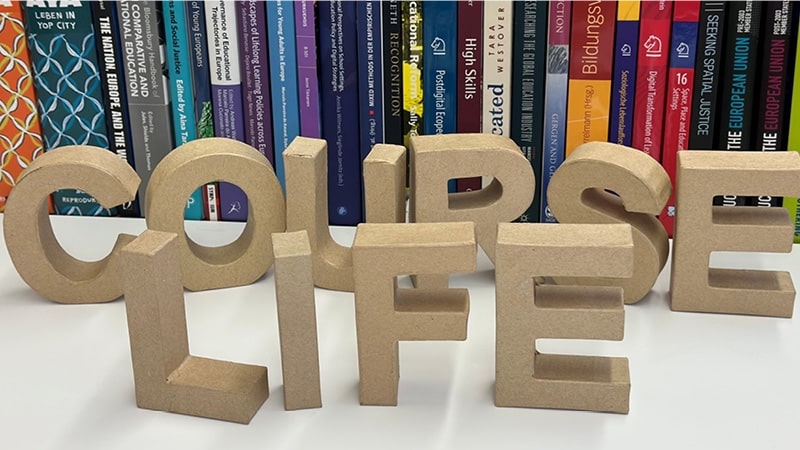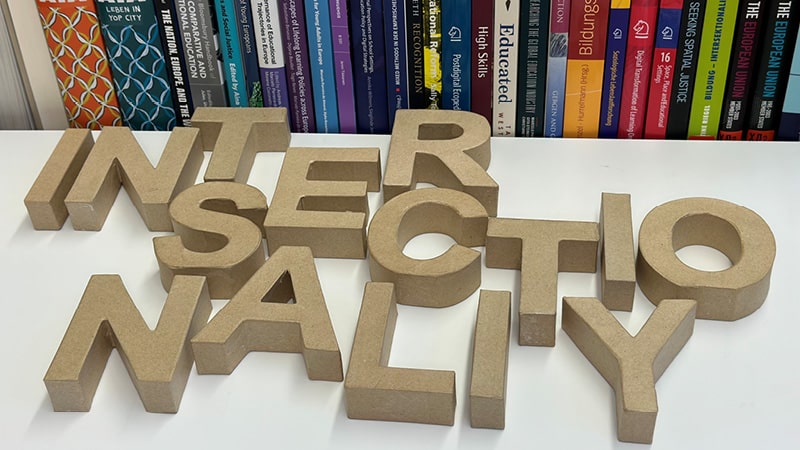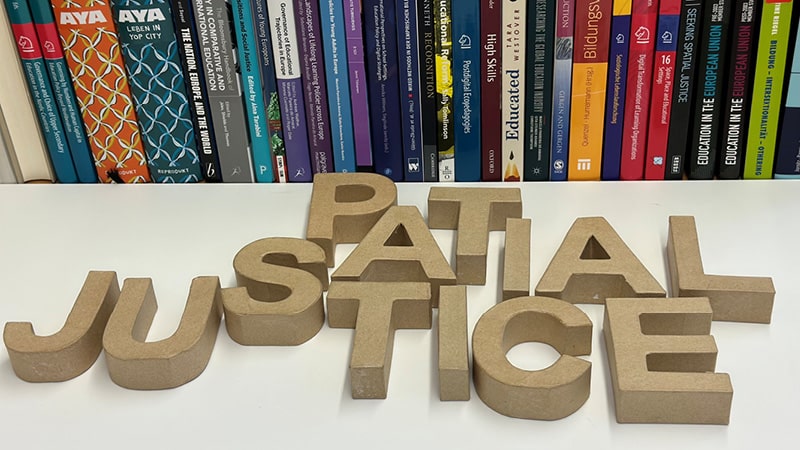CLEAR
Constructing Learning Outcomes in Europe: A multi-level analysis of (under)achievement in the life course NEWSInternational Publication
The CLEAR project’s open access book challenges dominant understandings of learning outcomes and educational (under)achievement and examines the quality and construction of learning outcomes across Europe. Published by Bloomsbury Academic, the joint publication of the CLEAR Consortium yields first insights into the project’s vast research findings and earmarks key conceptual differentiations for further debates on the quality of learning and education in Europe.
Educational achievement is considered central to economic development and social inclusion, yet its measuring is not a straightforward task, as the controversial discussion on defining learning outcomes show. Rather, they result from a complex process of constructing learning outcomes and entails manifold intersecting factors and actors. This volume argues that gaining an in-depth understanding of educational achievement requires re-thinking and re-conceptualising learning outcomes and their construction processes in a holistic and context-sensitive manner.
Organized along three thematic parts, the chapters in this volume challenge dominant understandings of learning outcomes and educational achievement in research and offer a reconceptualization of learning outcomes by drawing on three major theoretical perspectives, Life course, Intersectionality, and Spatial justice, thus bringing together different disciplinary approaches in a dynamic manner. Importantly, the book does not only offer new approaches and rethinking of learning outcomes, but also a critical reappraisal of the methodological frameworks used to research them, offering new tools for not only overcoming some of the major shortcomings and problems of the currently dominating approaches, but also tapping on the potential of participatory methodologies to facilitate the formulation and implementation of more effective, context-sensitive, and evidence-based policies. Drawing empirical evidence from the European funded research project CLEAR, the volume offers novel approaches to conceptualising, understanding, and researching learning outcomes and educational achievement that can promote inclusiveness of education.
The CLEAR research project (2022-2025) responds to the Horizon Europe’s Call HORIZON-CL2-2021-TRANSFORMATIONS-01-04: Addressing poor learning outcomes in basic skills and early school leaving at national, regional and local level in Europe and seeks to better understand the factors that affect the quality and the construction of learning outcomes in Europe.
The specific approach of CLEAR is centred on the process of constructing learning outcomes, which we interpret as the result of manifold intersecting factors and people: institutional arrangements, spatial and socio-economic determinants, discursive and socio-cultural influences, as well as individual experiences, dispositions, cognitive and psycho-emotional abilities.
CLEAR’s overall aim is to examine the combination of multiple factors shaping learning outcomes and thus affecting their quality. Based on a better understanding of the processes of constructing learning outcomes, CLEAR inquiries into the impact of policies to boost achievement and tackle underachievement, design participative activities at local level that spark innovative policy solutions and increase social upward mobility for young people.
The CLEAR research project is conducted in eight EU countries – Austria, Bulgaria, Finland, Germany, Greece, Italy, Portugal, Spain – which represent more than half of the EU’s population with diverse governmental and education systems, economic and labour market structures, and socio-cultural contexts. By conducting comparative research in the countries studied, CLEAR will generate new comparative knowledge on the existing educational policies targeting learning outcomes of young people aged 18–29 and attaining secondary and post-secondary education and training. Hereby, the CLEAR project gives a special attention to groups that are multi-disadvantaged and/or in vulnerable situations, as they have been massively affected by the COVID-19 pandemic’s ramifications.
Conceptually, CLEAR adopts dynamic and relational concepts – Life Course, Intersectionality, Spatial Justice – that will help explore the several mutually intersecting dimensions of the issue – individual, institutional, structural, relational, and spatial. The three theoretical frameworks bridge education, sociology, social and youth policy studies, and political sciences making it possible to explore the five analytical dimensions, and to adequately conceptualise information for research site selection. Furthermore, combining these theoretical views brings together different disciplinary approaches, which enables us to address the complex methodological issues in a dynamic and interdisciplinary manner.



Methodologically, CLEAR relies on proven and field-tested comparative research and combines well-established designs of mixed-method, multi-level analyses with novel participatory strategies, thus actively stimulating informed decision-making to support policy design and implementation. CLEAR uses a plenitude of methods and conducts quantitative and institutional analyses, web-based expert surveys, and qualitative and comparative analyses. It also applies innovative participatory strategies and runs Innovation Forums with various audiences and local/regional experts. Our methodological contribution also includes identification of sparse or missing data at various governance levels and enhancing the data quality of relevant regional and national bodies, which will help to spark innovative policy solutions.
The CLEAR project’s Final Conference in Lisbon: Impressions and Lessons Learned
On September 16, 2025, we have held our Final Conference at the Fundação Cidade de Lisboa in Lisbon, Portugal. During the Final Conference titled “From Learning to Living: Co-creating education quality across European regions”, we have presented and discussed our key...
If it were up to me… What learning outcomes should we strive for? – Innovation Forum in Plovdiv, Bulgaria
The Bulgarian Innovation Forum took place at Plovdiv University on April 15th 2025. The main objectives of the Innovation Forum (IF) included discussing the CLEAR project's main results, specifically drawing on the perspectives and personal experiences of participants...
Routes and Perspectives: Understanding the (dis-)continuums of Learning through Young People’s Narratives – Innovation Forum of the CLEAR research project in Thessaloniki, Greece
The Greek Innovation Forum took place at the Centre for the Dissemination of Research Results (KEDEA), Aristotle University of Thessaloniki on the 14th of April. The IF aimed to create a dialogic space where participants of different social backgrounds (e.g., young...


